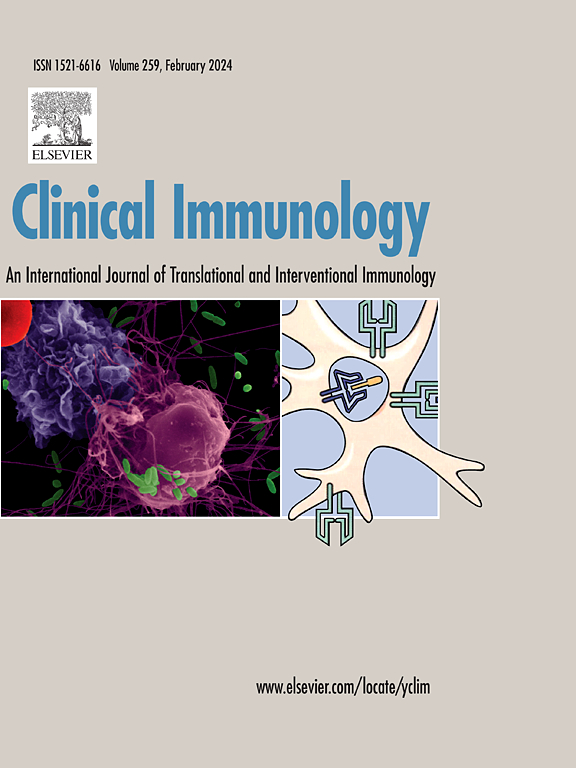儿童肾移植受者血浆总cfDNA甲基化提供了急性同种异体移植排斥病理生理的见解。
IF 4.5
3区 医学
Q2 IMMUNOLOGY
引用次数: 0
摘要
游离DNA (Cell-free DNA, cfDNA)是器官损伤和免疫反应的标志。DNA甲基化是基因表达的表观遗传调控因子。在这里,我们阐明了肾移植受者在存在和不存在排斥反应时的血浆cfDNA甲基化总量。在此过程中,我们利用cfDNA作为实时生物标志物来定义排斥反应的分子途径。在同种异体肾移植活检中收集了20份儿童肾移植受者血浆cfDNA样本。差异甲基化胞嘧啶残基(>20 %甲基化差异,q值本文章由计算机程序翻译,如有差异,请以英文原文为准。
Total plasma cfDNA methylation in pediatric kidney transplant recipients provides insight into acute allograft rejection pathophysiology
Cell-free DNA (cfDNA) is a marker of organ injury and immune response. DNA methylation is an epigenetic regulator of gene expression. Here, we elucidate total plasma cfDNA methylation from kidney transplant recipients in presence versus absence of rejection. In doing so, we exploit cfDNA as a real-time biomarker to define molecular pathways of rejection. Twenty plasma cfDNA samples from pediatric kidney transplant recipients were collected at allograft biopsy. Differentially methylated cytosine residues (>20 % methylation difference, q-value <0.05) were identified in presence (N = 7) versus absence (N = 9) of acute rejection. Separate analyses were performed comparing borderline rejection (N = 4) to rejection and non-rejection. In rejection versus non-rejection, there were 1269 differentially methylated genes corresponding to 533 pathways. These numbers were 4-13× greater than comparisons against borderline samples. Enriched pathways between rejection and non-rejection samples were related to immune cell/inflammatory response, lipid metabolism, and tryptophan-kynurenine metabolism, suggesting differential methylation of these pathways contributes to rejection.
求助全文
通过发布文献求助,成功后即可免费获取论文全文。
去求助
来源期刊

Clinical immunology
医学-免疫学
CiteScore
12.30
自引率
1.20%
发文量
212
审稿时长
34 days
期刊介绍:
Clinical Immunology publishes original research delving into the molecular and cellular foundations of immunological diseases. Additionally, the journal includes reviews covering timely subjects in basic immunology, along with case reports and letters to the editor.
 求助内容:
求助内容: 应助结果提醒方式:
应助结果提醒方式:


